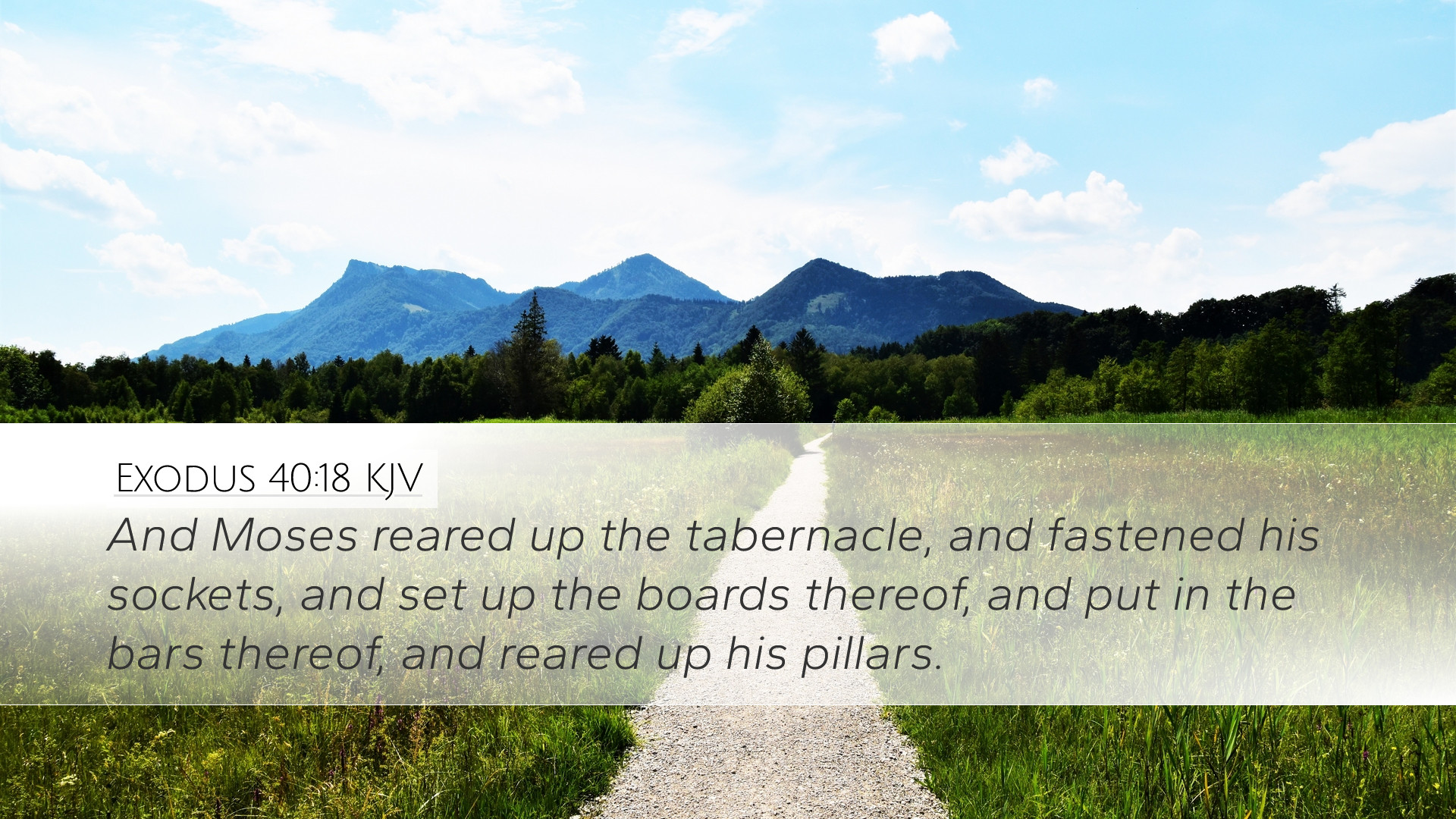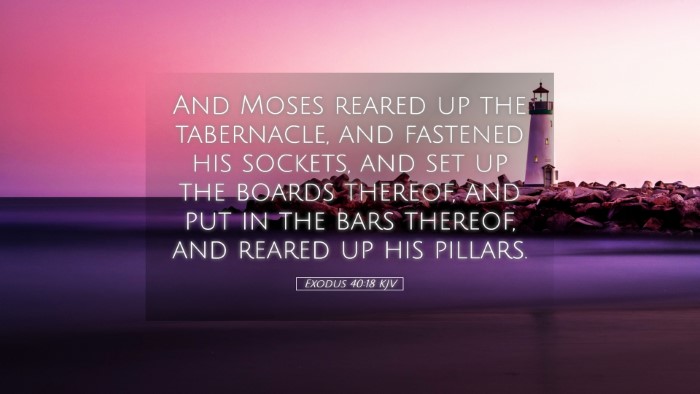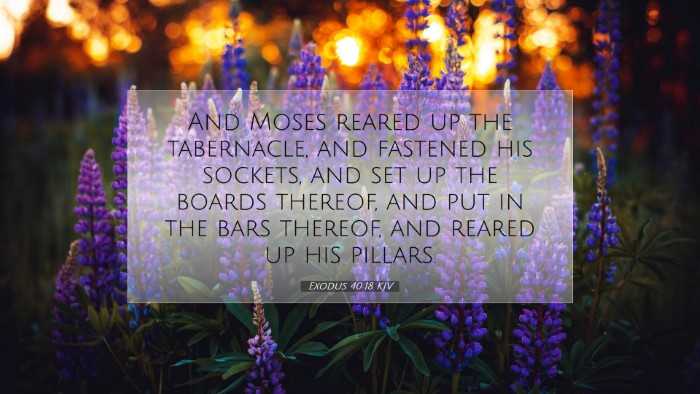Exodus 40:18 - Comprehensive Commentary
Verse: "And Moses reared up the tabernacle, and fastened his sockets, and set up the boards thereof, and put in the bars thereof, and reared up his pillars."
Introduction
This verse marks a pivotal moment in the narrative of the Israelites’ journey through the wilderness, where the establishment of the Tabernacle symbolizes God's dwelling among His people. The act of erecting the Tabernacle is not merely a physical construction but also represents the spiritual preparation of the people to meet with God.
Historical Context
The book of Exodus recounts the liberation of the Israelites from Egyptian slavery, receiving the Law, and the detailed instructions for constructing the Tabernacle. This verse occurs at the culmination of these events, where Moses acts in obedience to God's command, marking the transition from a nomadic existence to a community with a divine center of worship.
Insights from Public Domain Commentaries
Matthew Henry
Matthew Henry emphasizes the significance of the Tabernacle's construction as a manifestation of God's presence. He notes that the meticulous details in the assembly reflect God's order and holiness. **Henry highlights** that Moses' obedience in setting up the Tabernacle demonstrates the importance of following God's instructions precisely, serving as a reminder to believers today about the gravity of divine commandments.
Albert Barnes
Albert Barnes provides an analytical view of the structural components mentioned in the verse. He elucidates on the importance of each aspect, such as the sockets, boards, and bars, indicating that every part plays a vital role in the integrity and stability of the Tabernacle. **Barnes points out** that this assembly is a template for spiritual edification, suggesting that believers must likewise have strong foundations in faith and community to uphold their spiritual lives.
Adam Clarke
Adam Clarke's commentary focuses on the spiritual implications of erecting the Tabernacle. He perceives this act as a symbolic representation of Christ dwelling among humanity. **Clarke argues** that just as Moses raised the Tabernacle to house God's presence, so must believers cultivate their hearts and lives to welcome Christ. He also remarks on the communal aspect of the Tabernacle, signifying that worship involves the entire community's involvement and commitment.
Theological Reflections
The establishment of the Tabernacle serves as a central motif in the theological narrative of Scripture. It reveals God's desire to be in relationship with His people, a theme that is carried through the New Testament with the coming of Jesus Christ, who is referred to as Emmanuel, “God with us.”
God's Presence Among His People
The implications of God dwelling among His people are profound. This presence offers comfort, guidance, and a call to holiness. It establishes a precedence for worship that is both communal and individual. **Henry notes** that the setting up of the Tabernacle not only signifies God’s presence but also invites the people into a covenant relationship characterized by obedience and devotion.
Obedience in Action
Moses’ actions are a significant example of obedience in the life of faith. As leaders, pastors, and theologians, there is a clear message here: that true leadership is manifested in submission to God’s will and deliberate action. **Barnes reflects** on this aspect, underscoring the necessity of aligning one’s actions with divine instruction as a source of spiritual strength and community cohesion.
Symbolism of the Components
The various structural components of the Tabernacle symbolize different facets of the believer's life and the Church as a body. The sockets can symbolize the foundation of faith, the boards represent strength and support, and the bars suggest unity and security within the body. **Clarke articulates** how each of these elements reminds believers of their roles within the Body of Christ, encouraging mutual support and collaboration in spiritual endeavors.
Practical Applications
From this verse, there are several practical applications for modern-day believers:
- Commitment to Worship: The establishment of the Tabernacle calls believers to commit to regular and heartfelt worship.
- Importance of Obedience: Following God’s instructions precisely in life’s decisions is crucial for spiritual health.
- Collective Faith Journey: This verse denotes the power of community in worship; hence, believers are encouraged to gather and support one another.
- Preparation for God's Presence: Just as Moses prepared the Tabernacle, believers must prepare their hearts for encountering God.
Conclusion
Exodus 40:18 invites an exploration of God's longing to dwell among His people and the profound implications of this desire. The acts of Moses serve as a reminder that preparation, obedience, and community are integral to experiencing God’s presence. As believers reflect on this passage, they are encouraged to seek ways to embody these principles in their lives and congregations, ensuring that, like the Tabernacle, their lives are places where God's Spirit abides.


